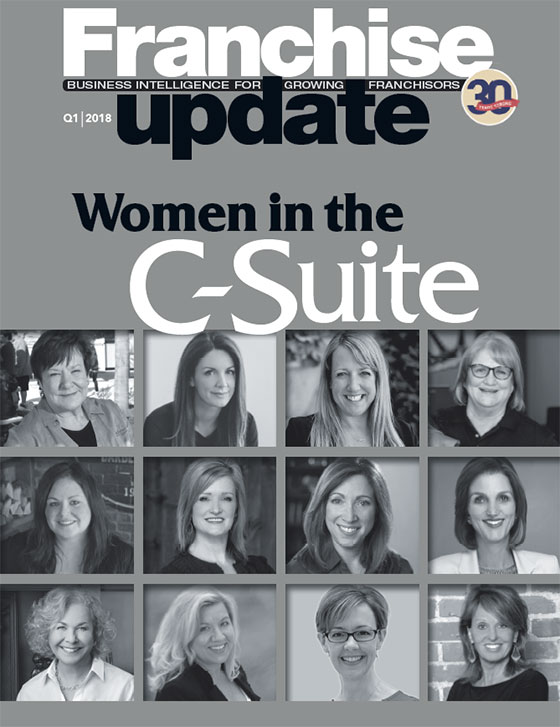Rejuvenating Retail: Making it More About the Experience

Why did the retail industry have a dismal 2017 despite high consumer confidence, historically low unemployment, and a growing U.S. economy? Typically these are the perfect conditions for retailers. However, retail brands are filing for bankruptcy and closing stores at historical highs. There are several reasons for this. One of the most obvious is the rise of e-commerce. Another is Millennials spending more on experiences than things. And let's not remove blame from the unsatisfactory customer experience the retailers themselves continue to deliver. Let's look at a few factors in retail's current decline.
Retail has become boring. The rise of mobile devices has ensured that retail will never be the same. Companies must deliver a new customer experience or risk falling into the retail chasm. The traditional retail model has become stale and unexciting. Many provide poor customer experience. Harris Interactive reports that customer service associates fail to answer customer questions 50 percent of the time. Bad service is made worse by bad revenue, as more salespeople are cut and fewer are left in stores to help customers.
Experience = entertainment and emotional engagement. The customer experience, when done correctly, is about entertainment and emotional engagement. Best Buy has embraced the showroom model. CNBC has called the company "a retail anomaly" because it's actually fun to shop there. Kids get to sample video games and adults get to play with the latest gadgets. For the digitally inclined, it's real-life virtual reality. Best Buy's stock rose more than 20 percent in mid-2017 after the company's in-store sales soared past expectations.
Best Buy is a wonderland for gadget geeks. The company has worked with partners including Google and Samsung to establish small sections of the store where each can show off their newest products. Visit a Samsung area, for example, and you'll find the latest smartphones and tablets, virtual reality headsets, and accessories. You can visit their gaming section to experience high-end mechanical keyboards, super-accurate mice, and fancy gaming headsets with surround sound audio.
Best Buy faces its fair share of risks, too, with some shoppers coming into the stores to try products before buying them from competitors, whether brick-and-mortar or online. However, customers still strive for immediate gratification. We still need places we can go to see, feel, and play with the products. Amazon's physical stores tie the mobile device into the in-store experience so much that one cannot shop without it. You use the phone to enter the store, walk around, take whatever you want, and it is all recorded. When you're done, you just walk out and you're billed on your phone.
Millennials: money is made for memories. While many articles have been written on how to lead Millennials, not as much has been written on how to sell to them. A recent study by the Harris Group revealed that 72 percent of Millennials prefer to spend their hard-earned cash on experiences rather than on material goods. America's now largest generation cares less about cars and houses and more about skydiving and touring foreign countries. It's a trend that's ultimately helping fuel the growth of billion-dollar start-ups such as Uber, WeWork, and Airbnb.
Millennials, who have tremendous spending power that's expected to only accelerate, require more than the orderly exchange of money for value. Attentive customer service is key to earning their loyalty and stimulating a positive social response. It is also a trend many retailers haven't adjusted to yet. Those who don't will find themselves closing hundreds of locations or filing Chapter 11.
Experience beats "stuff." Millennials view ownership differently than previous generations did. While young adults traditionally have placed high value in a car and home, Millennials have commitment issues with these types of purchases (though recent data indicates this is changing as they age and become parents). Since 1987, the Harris Group found that the share of consumer spending on live experiences and events relative to total U.S. consumer spending increased 70 percent.
"Millennials aren't spending our money on cars, TVs, and watches," Taylor Smith, CEO and co-founder of Blueboard, told CNBC. "We're renting scooters and touring Vietnam, rocking out at music festivals, or hiking Machu Picchu." Blueboard ("Experiential Employee Rewards for the Modern Workplace") customers include Chick-fil-A, Lyft, and GoPro. The company designs experiences such as skydiving, cooking classes, and couples massages.
Is your company adapting the experience it provides to position itself to attract the Millennial generation?
John R. DiJulius III is the author of The Customer Service Revolution and president of The DiJulius Group, a customer service consulting firm whose clients include Starbucks, Chick-fil-A, The Ritz-Carlton, Nestle, PwC, Lexus, and many more. Email him at [email protected].
Share this Feature
Recommended Reading:
FRANCHISE TOPICS
- Multi-Unit Franchising
- Get Started in Franchising
- Franchise Growth
- Franchise Operations
- Open New Units
- Franchise Leadership
- Franchise Marketing
- Technology
- Franchise Law
- Franchise Awards
- Franchise Rankings
- Franchise Trends
- Franchise Development
- Featured Franchise Stories
FEATURED IN

Franchise Update Magazine: Issue 1, 2018








 The franchise listed above are not related to or endorsed by Franchise Update or Franchise Update Media Group. We are not engaged in, supporting, or endorsing any specific franchise, business opportunity, company or individual. No statement in this site is to be construed as a recommendation. We encourage prospective franchise buyers to perform extensive due diligence when considering a franchise opportunity.
The franchise listed above are not related to or endorsed by Franchise Update or Franchise Update Media Group. We are not engaged in, supporting, or endorsing any specific franchise, business opportunity, company or individual. No statement in this site is to be construed as a recommendation. We encourage prospective franchise buyers to perform extensive due diligence when considering a franchise opportunity.